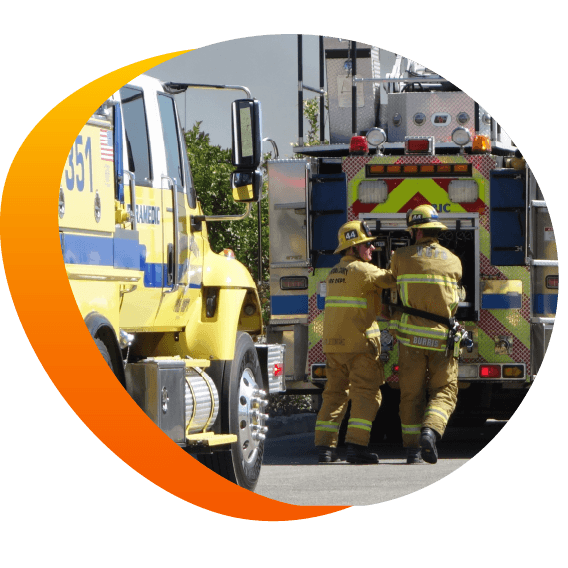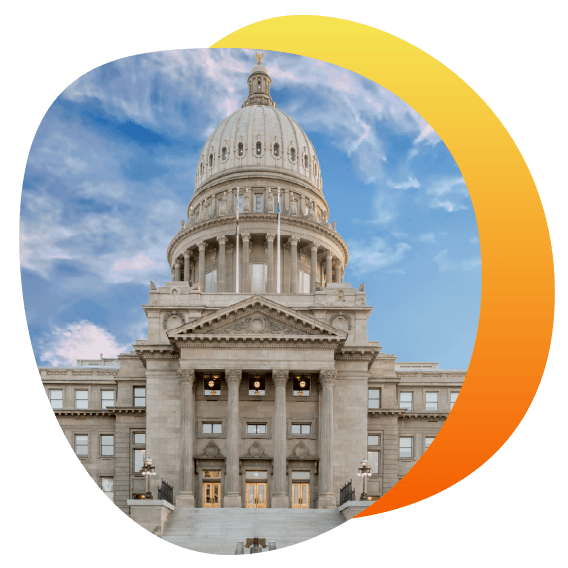
In Brief
Building a Smarter Way to Work: Boise's Agile Shift in City IT
The City of Boise’s IT Department wasn’t operating under a cohesive project management framework, muddying visibility and progress. With Resource Data’s guidance, tailored Agile practices and unified tools replaced the City’s siloed processes and leadership gained clear visibility into IT capacity and priorities.
By Sprint 3, the Data Services pilot team completed 41% more work than in Sprint 2. At the same time, ad-hoc work fell from 70% of the team’s focus as they learned to track, prioritize, and limit disruptive interruptions. In other words, with each sprint, Boise IT was getting more done while maintaining focus on purposeful, high-value work.
Key Takeaways
Agile transformation delivers transparency and collaboration for Boise IT
-
Project delivery became measurably faster
The Data Services pilot team increased throughput by 41% in Sprint 3, and another 28% in Sprint 4, consistently delivering more work. These sustained gains translate into faster feature releases and better alignment with city priorities.
-
Unified tools broke down silos for better visibility
Replacing multiple systems (Dynamics 365, Asana, Microsoft Planner) with a single Azure DevOps backlog gave leadership real-time insight into team capacity and priorities. With one source of truth, the City can make data-driven decisions instead of relying on fragmented status updates.
-
Operational workflows improved by reducing interruptions
At the beginning, Data Services and GIS spent up to 70% of their time on impromptu asks that derailed planned work. Defining, prioritizing, and tracking ad-hoc requests helps limit these interruptions, turning fragmented days into uninterrupted blocks for higher-value tasks.
-
Public-Sector agile works—when frameworks fit real constraints
By adapting Scrum’s 3-5-3 structure to internal development, SaaS, and vendor-managed projects, Boise teams overcame regulatory restrictions and procurement complexities. They deliver value without compromising compliance, showing Agile can thrive in government when frameworks are adapted to real-world constraints.
-
Mentorship bridges the gap from theory to practice
Embedding Resource Data consultants as Scrum Masters and Product Owners during early sprints accelerated adoption, so by Sprint 4, Boise teams were running ceremonies independently. Hands-on coaching cultivated confidence and minimized mistakes, ensuring Agile wasn’t just a concept but a practiced reality.
-
Customized training ensures lasting change
Over 400 pages of materials and 35 custom tutorials provide context and guidance without overwhelming teams. By aligning training with municipal workflows, staff feel supported and can reference best practices whenever questions arise.
-
Empowered teams drive continuous improvement
Over successive sprints, Data Services focused on cleaning up and organizing work items, and GIS refined how they prioritized tasks, completing more important features first. This shift shows teams aren’t just following a process, they’re actively looking for ways to plan better and finish work faster.

The Challenges
Disparate workflows and low visibility slowed IT progress
The City of Boise’s Information Technology Department comprises 85 employees who support a wide array of municipal services spanning public safety, infrastructure, citizen services, and more. Despite the importance of their work, the IT teams were operating without a cohesive project management framework.
Many projects were handled in silos, relying on waterfall methods or vendor-led processes that lacked transparency and clear accountability. This caused misaligned expectations, delayed project outcomes, and limited cross-department coordination. Teams had little insight into what others were doing, while leadership lacked clear, up-to-date visibility into project status, making prioritization difficult.
At the start of the project, both Data Services and GIS teams were spending significant time on impromptu requests—interruptions that made it difficult to plan anything beyond ad-hoc tasks. They treated every incoming request as “urgent,” causing a massive, disorganized backlog and hindering progress. This resulted in frustrated stakeholders, overloaded developers, and leadership scrambling to understand why work was never cleared.
Leadership recognized the City’s ability to support the growing technological needs of municipal departments and the public they serve depended on transforming not just tools, but team culture and processes. Without addressing these issues, Boise risked prolonged project delays, escalating costs, and dissatisfaction among departments and stakeholders.
Approach
A phased, people-first rollout with embedded mentorship
To help the City of Boise shift to a more transparent, collaborative, and accountable way of working, Resource Data designed a phased Agile transformation plan: Training, Adoption, and Execution. Each phase was grounded in real engagement and hands-on support—built not just to introduce new processes, but to change mindsets.
We began with a discovery phase, analyzing existing workflows, assessing readiness, and conducting stakeholder interviews. This allowed us to customize an Agile framework that aligned with public-sector realities and the City’s operational culture.
We structured delivery around:
- Familiar Scrum-based frameworks adapted for internal development, SaaS, and vendor-managed projects.
- Azure DevOps setup to support backlog management, prioritization, and real-time visibility.
- Role-specific training supported by over 400 pages of tailored materials, toolkits, videos, and exercises.
- Cross-department workshops to align on acceptance criteria and “done” checklists, reinforcing shared quality standards.
Rather than deploying a static playbook, we used coaching and real-world sprints to help teams experience Agile in action. Resource Data consultants initially led stand-ups, planning, reviews, and retrospectives while Boise team members observed and participated.
By Sprint 5 of the initial pilot, Boise’s teams were conducting ceremonies independently, with consultants transitioning to an advisory role. This gradual, confidence-building approach allowed Boise teams to internalize Agile principles and evolve their own practices. Adoption felt relevant, not disruptive and imposed.
Implementing Agile at the City of Boise was about more than just process change—it was about empowering people. By focusing on mentorship, tailored training, and hands-on practice, we helped teams embrace a mindset of continuous improvement. The result is a more collaborative, transparent, and responsive IT culture that’s built to support the city’s evolving needs.
Scott Beltz, Sr. Project Manager, Resource Data
The Solution
Agile infrastructure and playbooks purpose-built for public-sector teams
The backbone of the solution was a tailored Agile framework, supported by a city-wide configuration of Azure DevOps, customized specifically for Boise’s public-sector teams. This included custom product and sprint backlogs, burndown charts, Kanban boards, and dashboards. These tools power real-time reporting and transparent progress tracking for IT leadership and stakeholders alike.
As more teams adopted Agile practices, we provided repeatable templates and a shared playbook to ensure consistency without rigidity. Each department could align to a common approach while customizing workflows to meet their specific needs.
We also developed clear mentorship pathways and coaching structures to reinforce learning. Agile ceremonies, “definition of done” workshops, and multi-team collaboration efforts helped departments coordinate effectively and avoid duplication of effort.

Having access to toolkits, retrospectives, and real-time metrics was a game changer. Our team felt empowered to improve continuously.
Cindy Zuvich-Hinkle, IT Sr. Manager, Application Services, City of Boise
Features
Real tools and resources for lasting impact
-
Azure DevOps configuration for work visibility
A single Azure DevOps environment replaced siloed systems. Custom burndown charts, sprint backlogs, and dashboards surfaced real-time progress and capacity for IT leadership.
-
Role-based training for increased adoption
Product Owners, Scrum Masters, and team members each received tailored workshops, helping define responsibilities and foster internal champions.
-
Live mentorship for real-world learning
Resource Data consultants facilitated daily scrums and early sprints, demonstrating Agile ceremonies and guiding teams through hands-on practice.
-
Reusable agile toolkits for ongoing enablement
A 400+ page playbook—complete with role descriptions, ceremony guides, sprint facilitation materials, planning and reporting templates, checklists, and 35 video tutorials—created a sustainable training library.
-
Mult-team coordination for consistent practices
Shared workflows and an Agile playbook helped ensure that each department could adopt Agile in a way that met their specific needs while maintaining organizational consistency.



The transition to Agile helped us rethink how we deliver technology to the community. It’s no longer just about finishing a project—it’s about delivering value iteratively and transparently.
- Alex Winkler, CIO, City of Boise

Results
A culture shift that improved delivery and collaboration across City IT
The City of Boise saw immediate and meaningful outcomes from its Agile rollout. For example, Data Services increased throughput by 41% between Sprint 2 and Sprint 3, then another 28% between Sprint 3 and Sprint 4.
As training and tools took hold, the teams began triaging incoming “emergencies” instead of treating them all as top priority. Users also learned to submit requests through proper channels. This shift means fewer interrupt-driven asks, more clarity around true priorities, and ultimately faster, more focused delivery of what matters most.
With unified backlogs and transparent prioritization, departments were better equipped to collaborate and plan across teams. Leadership gained a real-time view into who was working on what and what was coming next, increasing accountability, improving resource allocation, and ensuring priorities aligned with business goals.
Teams also began to identify and solve their own process gaps. Empowered by training and mentorship, staff felt confident proposing changes and experimenting with different sprint lengths, splitting large tasks, and refining how they tracked work. The result was not just better project delivery, but a cultural evolution toward agility, transparency, and continuous learning.

It would be impossible to pry my team away from the methodology and the Scrum framework at this point…I’d have a mutiny on my hands.
Greg Hanmer, IT Sr. Manager, Data Services, City of Boise

What's Next
Scaling momentum across the organization
The pilot teams’ success sparked a cultural evolution toward agility, transparency, and continuous learning. We are continuing the agile training program across the IT department’s divisions, from Enterprise Services to the Web, Dev, and App Services teams. A train-the-trainer program is underway to create internal champions who can scale Agile knowledge and skills organically.
Resource Data also continues to support the City by building more advanced Agile dashboards and refining key metrics. Executive workshops on Agile leadership and organizational change management are also planned to help sustain this transformation.







